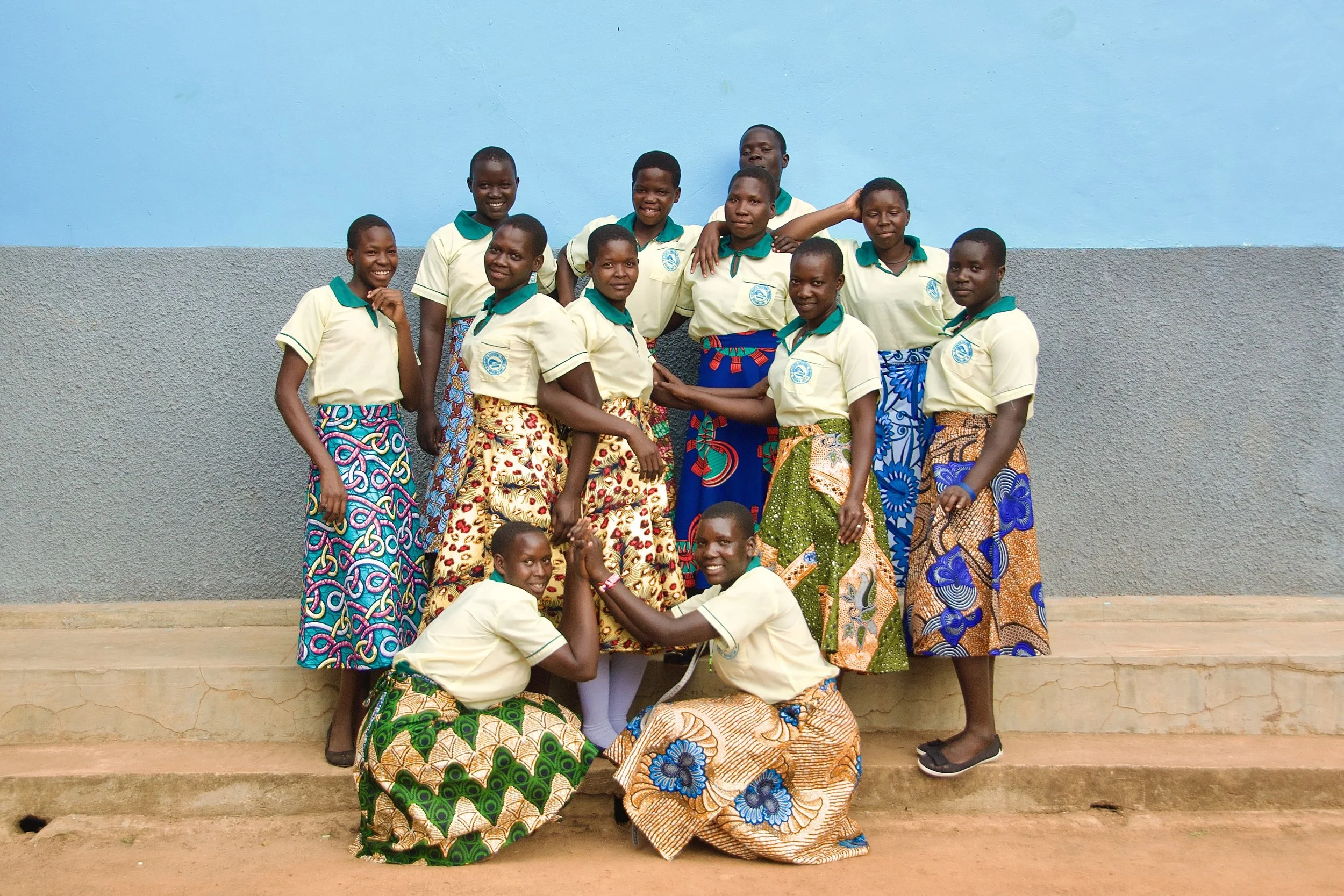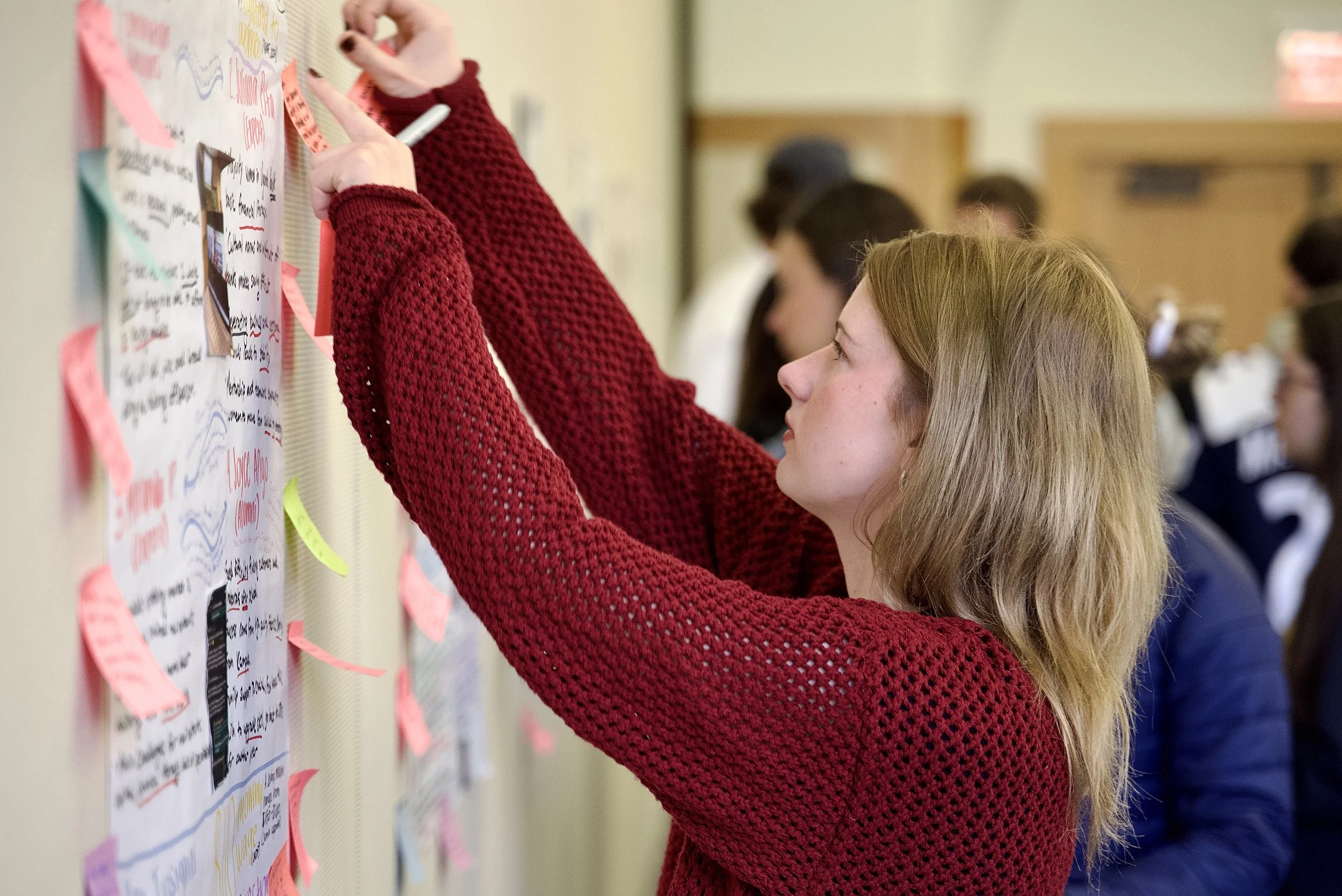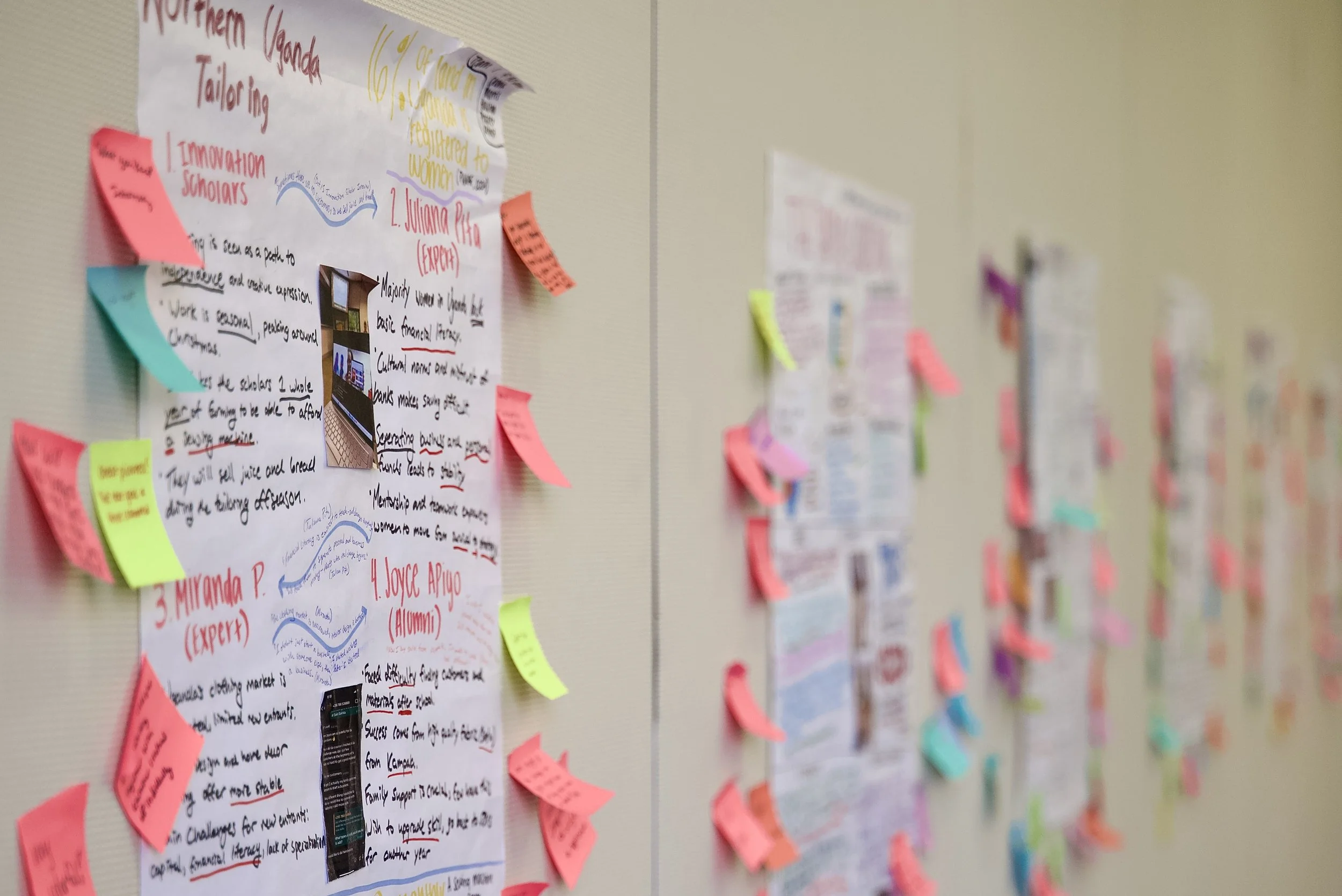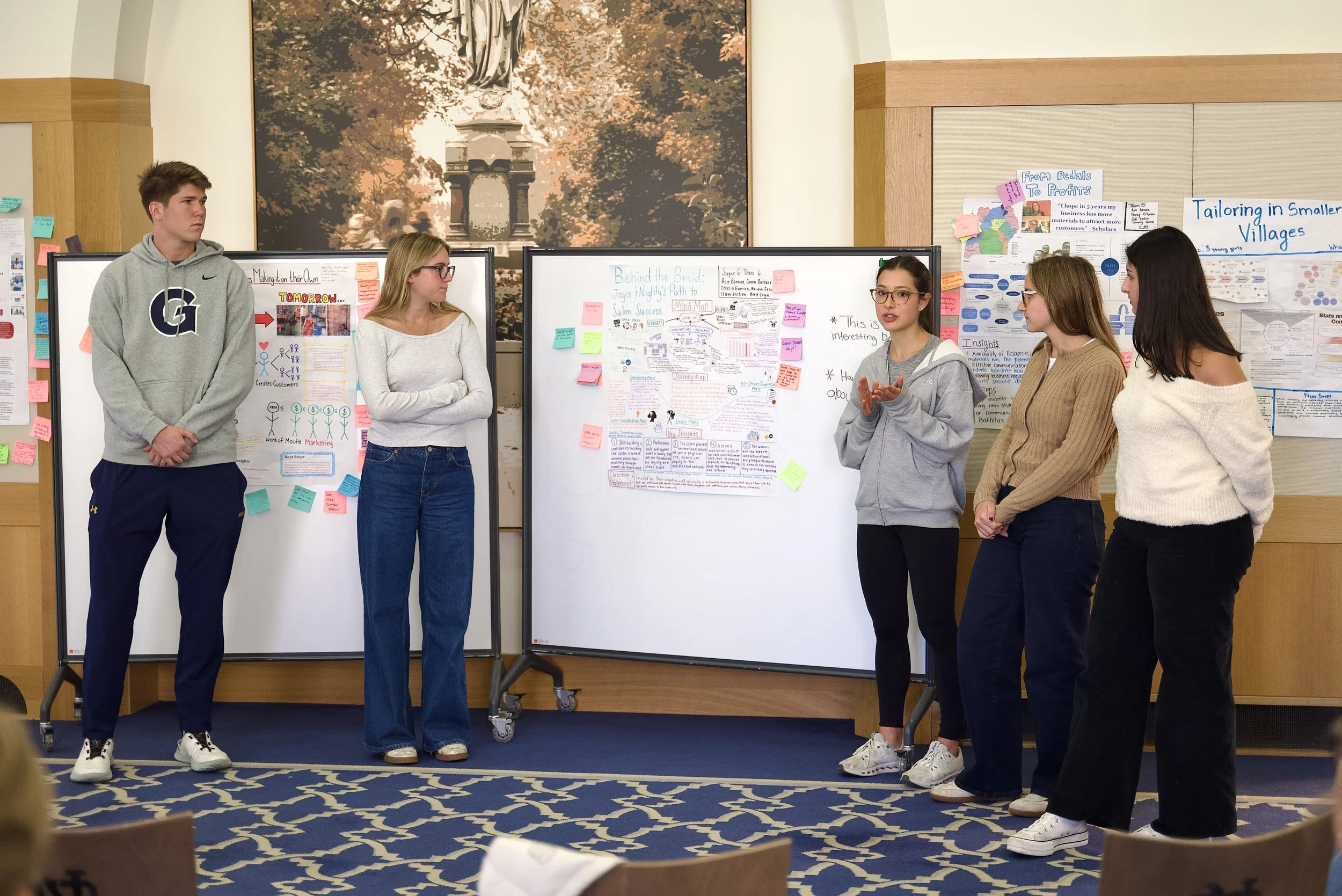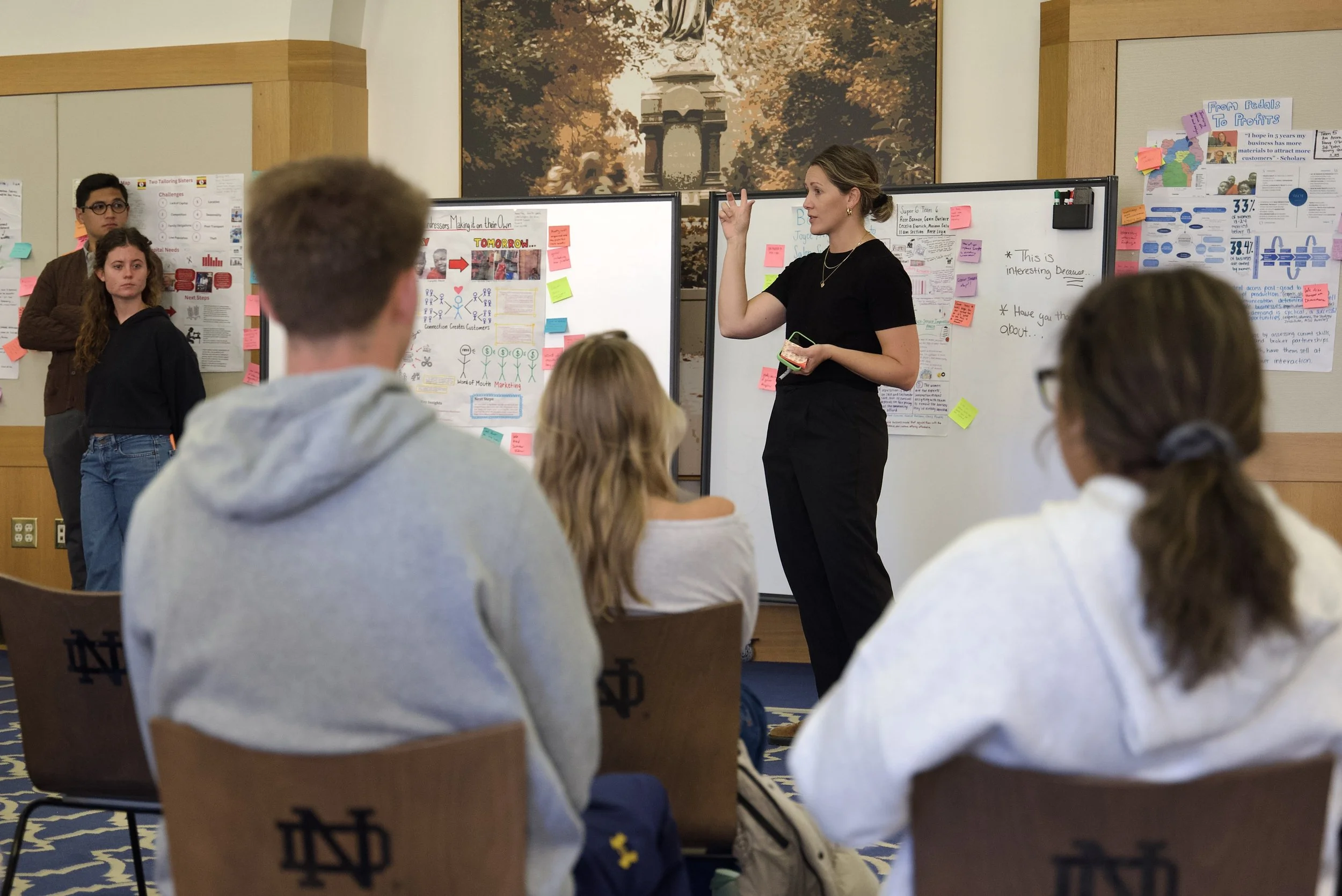Teaching Sample
Innovation & Design Thinking
Project Background
To date, hundreds of Notre Dame students have participated in the Mendoza Innovation and Design Thinking course, working alongside our first partner, Saint Bakhita Vocational Training Center (SBVTC)—a women's vocational school in an impoverished region in northern Uganda. Together we are striving to (1) ensure the students have the support needed to thrive, (2) working with the school to achieve self-sufficiency and (3) improving the economic prosperity of the region.
This work led to the creation of the Impact Consulting Minor. This minor offers a dynamic blend of academic rigor and real-world application, immersing students in multi-semester partnerships applying human-centered design thinking, consulting and business strategy to create, invest and implement solutions to make an impact on the world's most pressing problems. Students engage with project partners over multiple semesters to ensure the sustainability of solutions and to measure and amplify impact.
Course Overview
This course applies human-centered techniques and systems thinking to tackle “wicked problems” with empathy, creativity, and rigor. Students connect with real users, generate and test ideas, and recommend solutions grounded in evidence—skills they can carry into any field or future challenge.
For this class, Notre Dame students partner with students from Saint Bakhita Vocational Training Center (SBVTC), known as Innovation Scholars. The ultimate objective of this project is to identify a new business venture idea for the Innovations Scholars to launch post-graduation and to think of ways we can support the Innovation Scholars after they graduate.
Because business ideas do not emerge in isolation, students examine the larger systems that shape opportunity—such as community resource networks, local markets, social norms, poverty dynamics, and gender roles. Understanding these interconnected layers is essential to designing solutions that are meaningful, sustainable, and locally rooted.
Throughout the semester, Notre Dame students connect with the Innovation Scholars via six live Zoom sessions to build relationships, exchange insights, co-develop ideas, and share prototypes. At the conclusion of the course, Innovation Scholars will have the opportunity to receive financial support through a Notre Dame-supported Impact Fund, distributed through a Village Savings and Loan Association (VSLA) model designed to support long-term entrepreneurship and community resilience.
“ We want to provide opportunities for students to connect and design ‘with’ rather than simply ‘for’ communities from around the globe.”
Phase 1: Understand
Notre Dame students began their ethnographic research by having several Zoom calls and empathy-building exercises with the Innovation Scholars. The goal is for students on both sides to get to know each other, grow in empathy, and learn what the unmet needs are in the Innovation Scholar communities.
ND students interview experts from around the world to learn best practices for launching businesses in a developing region and interview alumni from SBVTC. They engage in a VR immersion exercise where they experience what it is like to be at SBVTC and the local market. Students from ND and SBVTC work together to develop fieldwork exercises for the Innovation Scholars to take to the field to uncover local needs.
One team, known as “Team Family Fusion”, realized that a successful design depended on their ability to first understand and empathize with social norms that often prevent the Innovation Scholars from fully thriving after graduation. Through in-depth conversations with Innovation Scholars and their parents, they were left with three key takeaways:
Shared Wealth
Ugandan families typically view financial success as a shared resource, expecting more well-off family members to contribute to the expenses of their immediate family, and often to their extended family, as well.
Financial Direction
While women tend to be the main household providers through subsistence farming, product sales or other jobs, husbands often are in charge of the family finances, potentially leading to the blending of business and personal finances.
Short-Term Focus
Many older family members lack education in financial literacy, and given that businesses in rural Uganda are often focused on generating basic income, profits are often seen for their short-term benefit rather than their long-term potential.
This phase of the project ends with a gallery day where students from 3 separate sections of the class come together, share their in-depth research with one another, and use systems thinking to identify needs and opportunities
Ideate & Prototype
The team learned that there was often a breakdown between what the Innovation Scholars learned at SBVTC and how their families viewed money, and refined their goal to address this divide.
As ideas began flowing, Team Family Fusion conducted a series of co-creation sessions with a team of Innovation Scholars to further explore topics like family dynamics, financial literacy, and knowledge sharing. The team learned that deep family conversations most often happen in the evening, seated around the fire. They also learned that the best ideas were ones that involved simple, tangible solutions that sparked joy and empathy along the way.
Bakhita Business was Team Family Fusion’s response to the challenging prompt. The board game moves players through a path full of potential business opportunities and threats to create a friendly environment of competition, yet it is simultaneously designed to proactively foster discussion between Innovation Scholars and their families. Scenarios in the game help simulate the complexities of entrepreneurial decision-making and encourage players to critically examine how they use their resources to balance short- and long-term success. Together, these elements transform Bakhita Business into an educational tool, putting financial literacy principles into practical use
Phase 3: Pitch & Test
Bakhita Business recently left the classroom and was tested at SBVTC in Kalongo, Uganda during Professor Wendy Angst’s Innovation and Design Thinking Immersion trip in January 2025. Spearheaded by Jessica Vickery (‘25), the game's first round of testing prioritized alumni feedback and got input from:
A recent alumni of SBVTC's tailoring program and her sister.
An alumnus and current staff member at SBVTC, and a current catering student.
Other Notre Dame students on the immersion trip.
While more family members were not immediately available for feedback while the ND was there, future students will look for ways to incorporate the family and community perspectives. The testing focused on the feasibility of gameplay, common strategic approaches amongst different demographics and comprehension of instructions. Each testing session consisted of pregame questions regarding resource management, actual gameplay, and post-game feedback and reflections.
